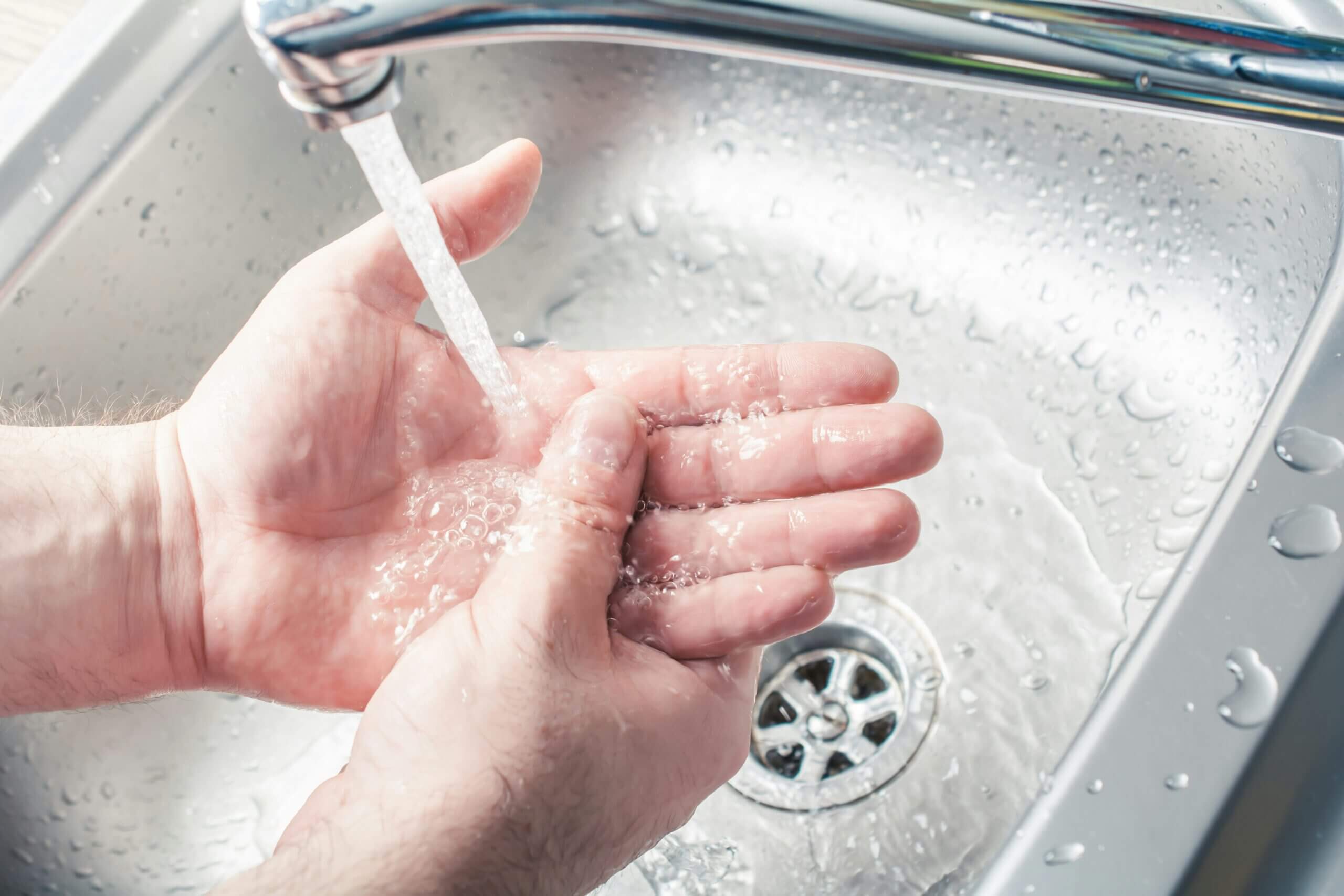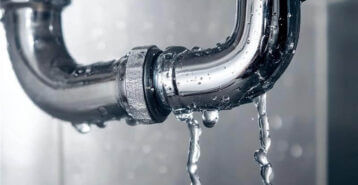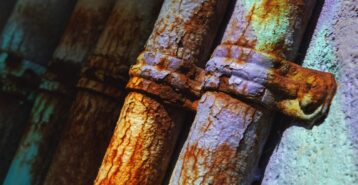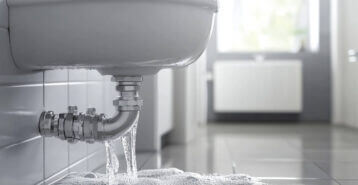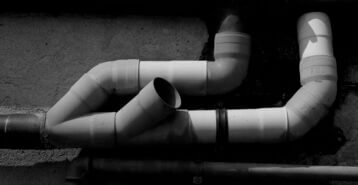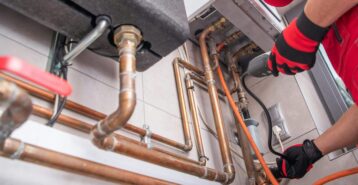Water Line Repair Cost: A Complete Guide
When you notice water in your home where it shouldn’t be, the first thing you might wonder is how much this is going to cost you. You might open up the cabinet and see the leak right there in the exposed plumbing, which leads to a sigh of relief — you might even be able to fix that yourself! But if a pipe is deep within the walls, underneath your home, or buried in the ground, you’re looking at a much higher price tag. Let’s break down water line repair and replacement to give you a better idea of what your bottom line might be.
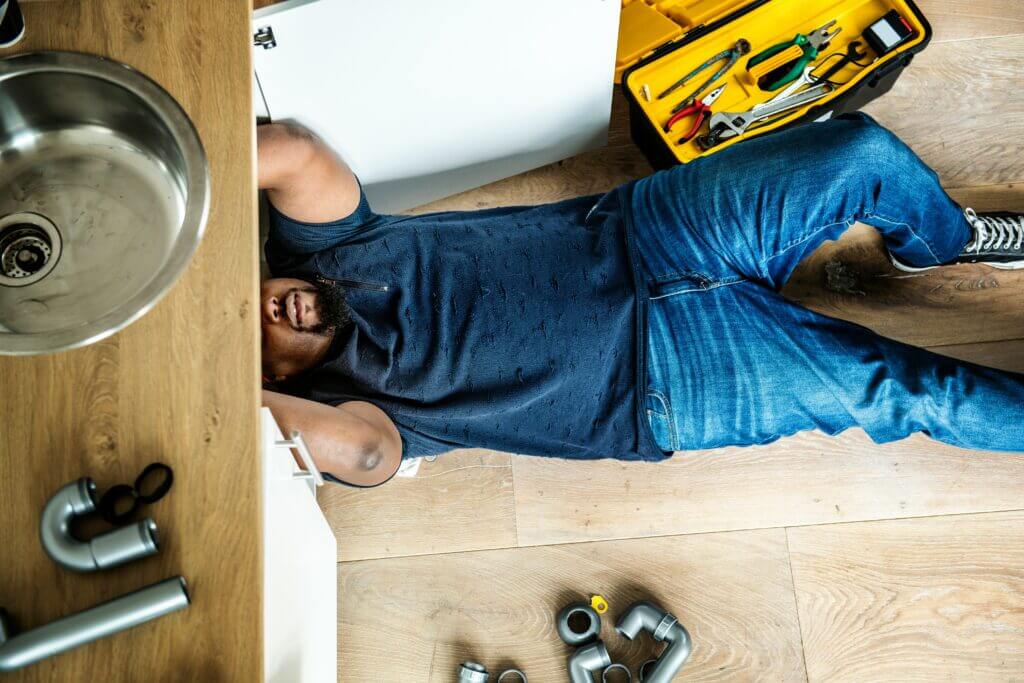
What Is a Water Line?
A water line is the plumbing that brings water into your home for use in a variety of ways, from running the water to doing dishes to getting a shower.
When you have a leak in a water line, sometimes you will notice a drop in water pressure — that’s because water is escaping through a crack or break in the pipe before it gets to you. Sometimes a slow leak won’t lead to a drop in water pressure and thus might take more time to find; this can result in significant damage over time.
To replace or repair a water line, you will need new sections of pipe, the connections necessary to secure it, valves for the pipe (if applicable), and the pipe glue and other small materials to ensure the job is done properly.
Why Might a Water Line Need Repair?
Repairing a water line usually results from three things: leaks or breaks, corrosion that destroys the pipe and leads to leaks, and replacing faulty or worn-out valves. But there are other things that can come into play too. Here’s a rundown:
- Leaks: Leaks in a water pipe can occur for a wide variety of reasons. You’ll notice a leak when your water pressure begins to drop and your water bills go up even though you aren’t using more water than usual. Small leaks might not present a problem for years, but eventually they become large enough for you to take notice.
- Corrosion: Metal pipes are constantly subjected to water and the elements, and over time that can lead to corrosion. That corrosion can create weak spots in the pipe and that can lead to breaks, which of course requires repair or replacement of the pipe.
- Tree Root Intrusion: Trees love to reach out for water, so it’s not unusual for a root to make its way into a water pipe. As the roots grow inside the pipe, they result in blockages, and can even crack the pipe so severely that it leads to serious property damage.
- Shifting Soil: Even the most stable ground is constantly moving just the slightest bit. Major shifts occur with earthquakes, nearby construction, and major weather events, such as a flash flood. The shifting of the soil can damage water lines, either gradually or suddenly.
- Freezing and Thawing: Water expands when it freezes. That expansion puts strong pressure on the pipe. Even if the pipe doesn’t break or crack, it is weakened every time a freeze-thaw cycle occurs. Eventually, one of those freezing events will be the final straw that leads to a crack, burst, or leak.
- Faulty Valves: A valve is often the “weak spot” in your plumbing and is more likely to fail than the pipe itself. Fortunately, valves are easy work for a plumber to replace, and usually wind up costing between $150 and $300 for the parts and labor.
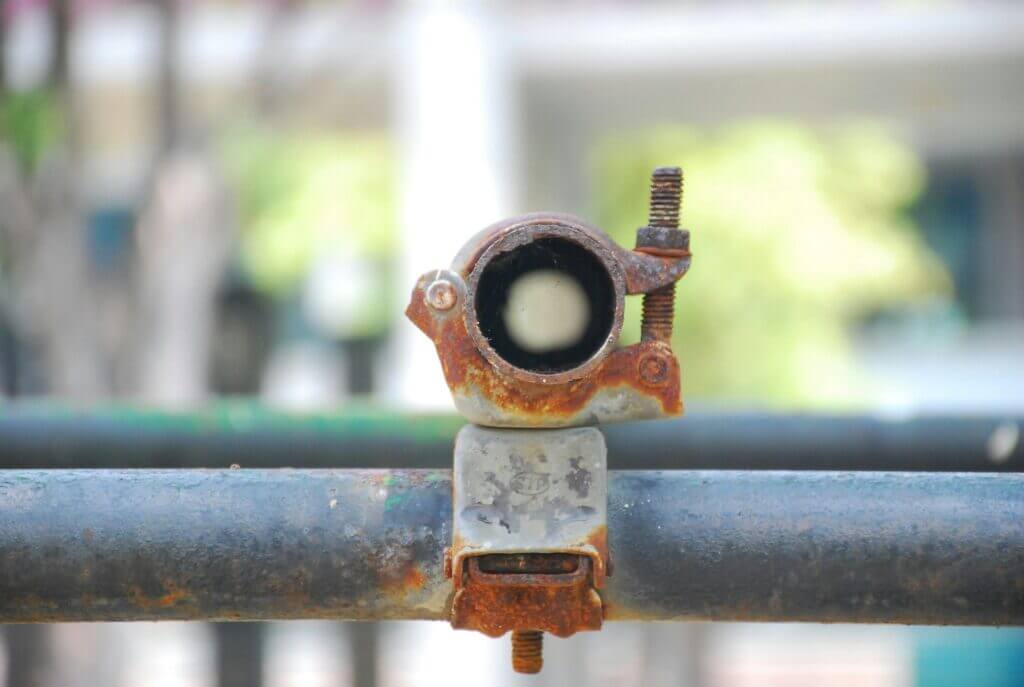
How Much Does Water Line Repair Cost?
Some experts say that the average cost to repair a main water line is about $1,000 but can range from about $350 to $1,700. Repair costs can vary significantly depending on several factors. The cost of fixing a water line is very hard to pin down. That’s because each repair or replacement is different — there is no standardized price. For example, the labor for water line repair is between $70 and $120 per hour, on average. How many hours the job will take depends on the complexity. The materials matter as well, as the pipe can range from $0.40 per linear foot to over $8 per linear foot. Other materials needed to complete the repair come into play as well.
The location matters too — a pipe that is easily accessible will be much more affordable to fix than one that requires heavy equipment to break through concrete or dig into the ground to find the troublesome pipe.
Here’s a general overview of what you might expect.
- Minor Leaks: These leaks might actually be a nice do-it-yourself project, especially if they are easy to access, such as leaks that occur under the kitchen sink. Most of these leaks can be repaired for a few hundred dollars. The range is typically between $150 and $500.
- Significant Damage: If you don’t catch a leak quickly enough, you could face significant damage to your home, especially to flooring and drywall. Extensive damage and leaks in hard-to-reach places usually necessitate the help of a plumber and can cost between $500 and $2,000 to fix.
- Full Replacement: Sometimes a leak is just too bad to repair. If that’s the case, replacing the line can run between $1,500 and $5,000, depending upon the length of the replaced section and the material you choose to use.
Factors Affecting Water Line Repair Costs
What makes the difference in the total cost of repair or replacement? Here are a few points.
- Location and Accessibility: A water line that is underneath a cabinet or otherwise easy to reach will mean a lower labor cost. But those that are under concrete, underground, or deep within walls that must be cut into to gain access can add to your costs.
- Extent of Damage: A minor leak is much easier to repair and thus, more affordable. But if the pipes have major breaks, widespread corrosion, or other serious damage, you might find that the problem extends beyond the pipe. For instance, a major break in a pipe can lead to serious flooding in your home, and that drives up the cost significantly.
- Pipe Material: The material you choose for the pipe repair or replacement contributes to your bottom line. For instance, PVC pipe costs between $0.50 and $1 per linear foot, while PEX pipe runs between $0.40 and $2 per linear foot. Copper is much more expensive at $2 to $8 per linear foot but lasts longer than the other options.
- Labor Rates: The labor rates will reflect your geographic region as well as the complexity of the repair. In most cases, labor rates are lower in rural areas and higher in urban places. The rates might be higher if a great deal of travel is involved or if the work requires heavy equipment, such as reaching a pipe under a concrete slab. Labor rates tend to run between $40 and $120 per hour.
- Permits and Inspections: In some areas, permits and follow-up inspections might be required. This isn’t the case for a simple leak repair, but if you must cut into the walls or go underneath the ground to reach the pipe, permits are more likely required. Permits can run a few hundred dollars.
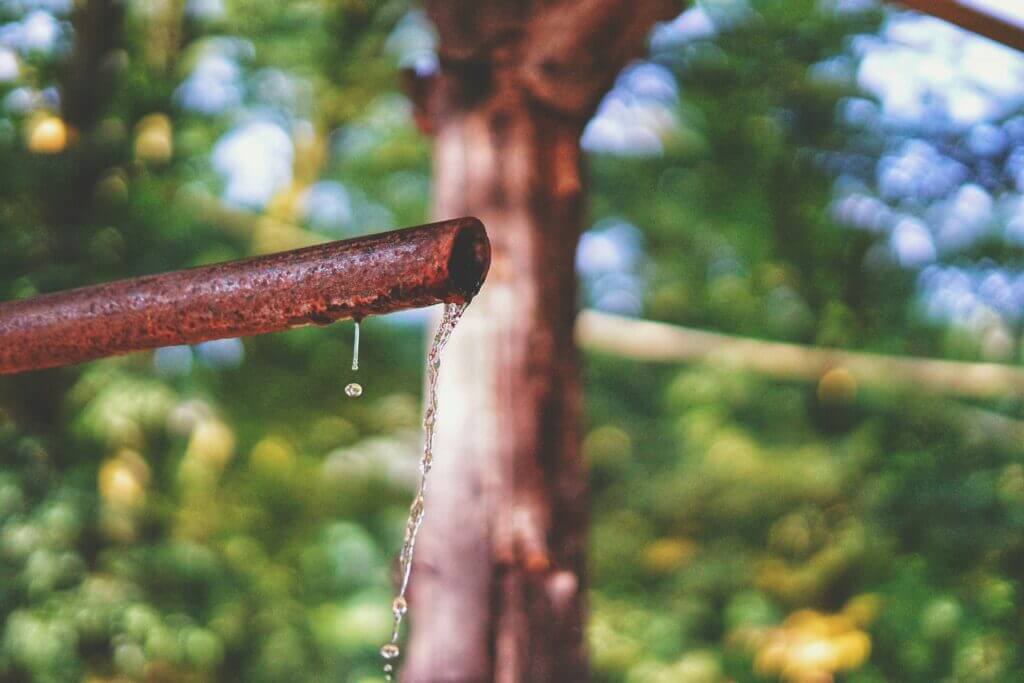
How Is a Water Line Repaired?
Here’s your step-by-step guide.
- Inspection and Diagnosis: To begin the process, a plumber will inspect the water line to find where the damage lies. They might be able to do this visually if the pipe is easy to access. More likely, however, they will use devices to detect leaks or cameras to feed down the pipe to find the problem. Once they do that, they will be able to give you an estimate.
- Accessing the Pipe: Now it’s time to get to the pipe and do the work. This might be simple. But it might also include cutting into walls, removing flooring, digging in the yard, or even going into the concrete slab underneath your home. The plumber will tell you exactly what they must do to get to the pipe.
- Repair or Replacement: If the damage is easy to repair, the plumber will patch the pipe. If it must be replaced, that means a bit more work. The length of pipe that must be replaced can be a factor in how long the work takes and how much disruption it entails.
- Testing and Clean-Up: When the repair or replacement is complete, your plumber will thoroughly test the system to make sure there are no further leaks or other water problems. They will then restore the area to its original condition as much as possible. Often this just means cleaning up a bit of water. But if you are dealing with a significant disruption – such as your yard being dug up — you might have to go further and do some cleanup on your own.
When you need water line repair or replacement, it’s best to call the pros and let them figure out the best course of action. Call as soon as possible, as a water leak or break in the line should be fixed immediately to keep your home safe and help you avoid higher utility bills.
If you need help finding a plumber for the job, Modernize can help. We can connect you with pros in your local area that will be able to handle any plumbing emergency that comes their way.
Compare top-rated plumbing pros in your area.
Read real homeowner reviews, explore qualifications, and view promotions. Modernize makes it easy to browse professionals and find one that will be perfect for your project.
